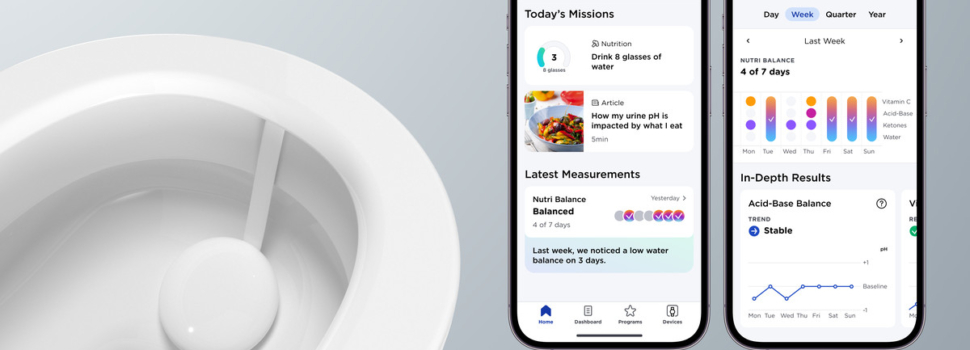
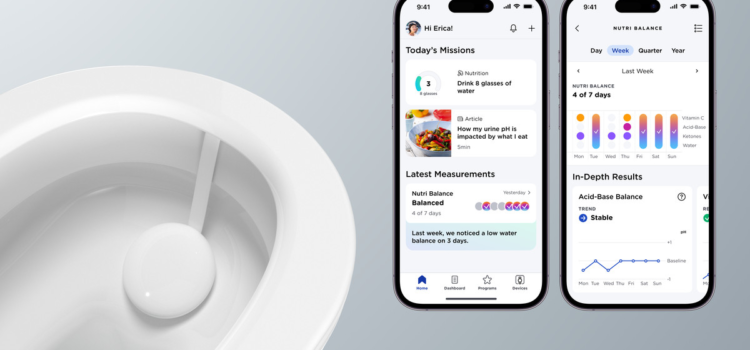
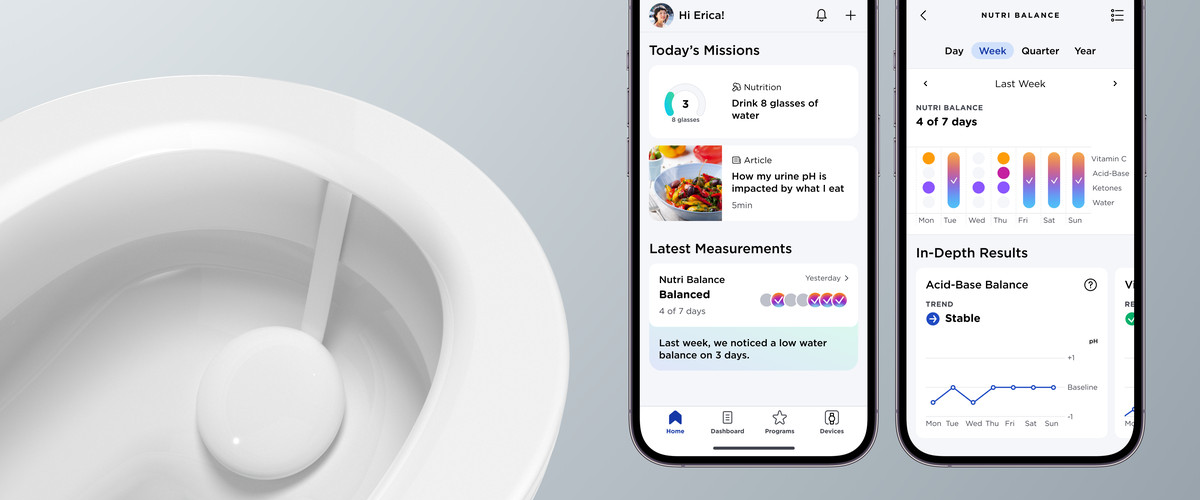
The U-Scan is a noninvasive device that you stick in your toilet to monitor metabolic and reproductive health.
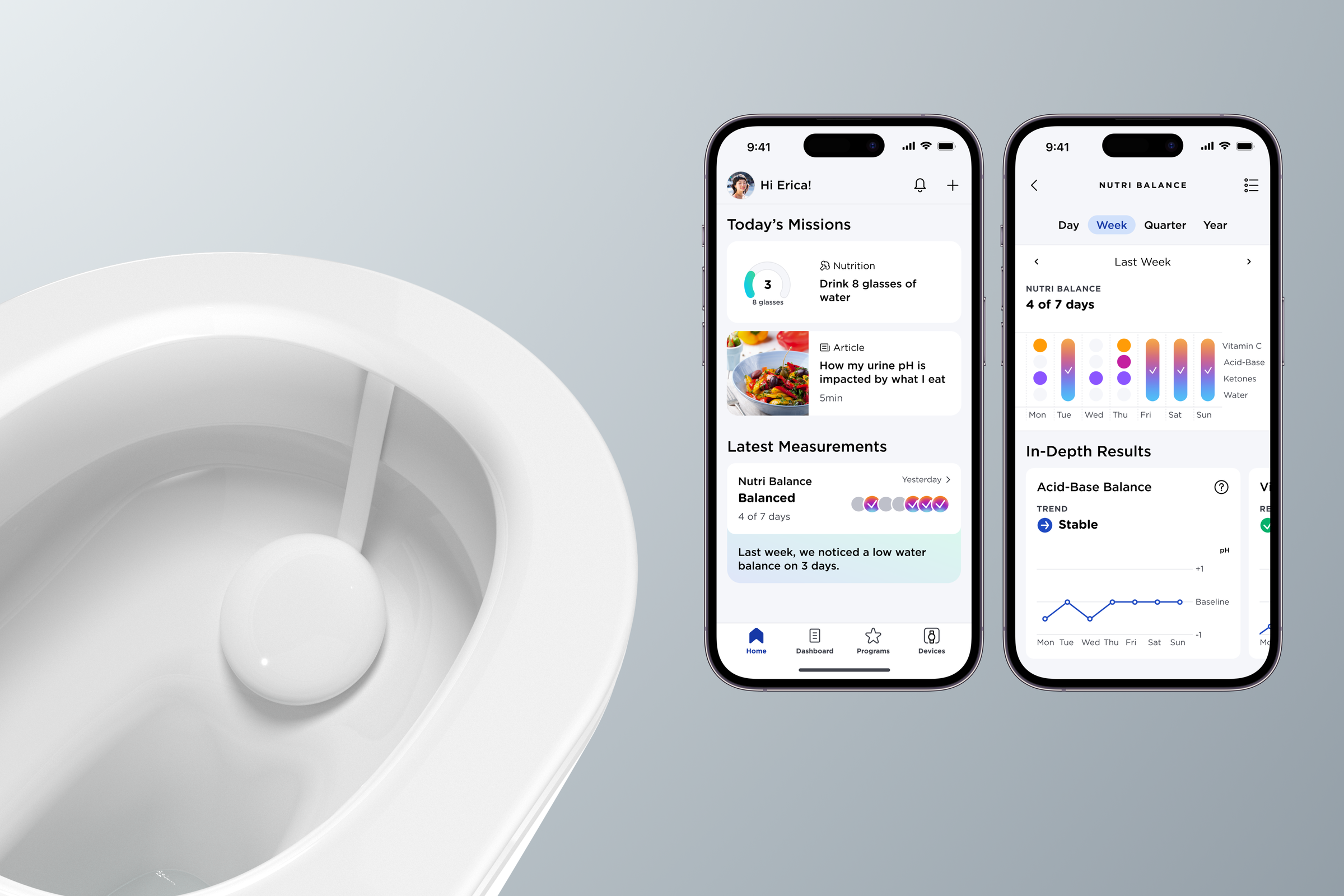
Withings is generally known for its sleek smartwatches, but it also shows up at CES each year with ambitious health gadgets. Last year, it was a smart scale that could also take EKGs and segmented body composition readings. This year, it’s the U-Scan, an at-home, hands-free “urine lab” that you stick in your toilet.
Yes, you read that correctly.
The U-Scan consists of two parts: a reader and a replaceable cartridge. The reader itself is the part you pee on, while the cartridge is inside. It has a thermal sensor to differentiate between pee and toilet water as well as low-energy radars to detect who is urinating by identifying the movement and distance of your individual urine stream. In other words, the U-Scan only works with one person per reader. As for the actual mechanics of how to pee on the thing, Withings CEO Mathieu Letombe says all you have to do is pee normally — but onto the device instead of directly into the water. There’s nothing you have to do to activate it, and there are enough tests in the cartridges for about one test per day.Once the reader detects you’re peeing, it uses a microfluidic circuit to take a small sample. The rest then gets dumped and the whole thing gets “cleaned” when you flush.
It sounds relatively simple, but Withings is very serious about pee and developing the technology so you don’t have to risk touching that pee. It took four years and 13 patents, but you don’t have to do anything until it’s time to recharge the reader or switch out cartridges. (By the way, the reader charges by USB-C.) According to the product sheet, it also comes with a pair of gloves and a cleansing agent.
For the cartridges, Withings is focusing on two use cases to start: reproductive health and nutrition. The Cycle Sync cartridge measures luteinizing hormone (LH), pH levels, and hydration levels via urine specific gravity — or how concentrated your urine is. Tracking LH can help detect which part of the menstrual cycle a person is in as well as estimate an ovulation window. Withings says pH levels can act as an indicator of whether your diet is too acidic (not enough veggies) or basic (not enough protein).
The Nutri Balance cartridge also measures pH and hydration in addition to ketones and vitamin C. Ketones are an acid produced when your body breaks down fat and can be an indicator of your metabolic health. Too many ketones in your blood can trigger ketoacidosis — a serious condition where your blood is too acidic. Meanwhile, Withings says tracking vitamin C might help people improve iron absorption.
Once the tests are finished, the results are sent via Wi-Fi to the Withings app, and the cartridge rotates to the next test pod. Each cartridge holds about 100 tests and lasts about three months. In the app itself, users will also get actionable tips to improve their health based on their results. (Though, as always, you should never think of insights from health and wellness devices as medical advice.)
“Why urine? Because it contains tons of information about your daily health,” Letombe told The Verge. Letombe went on to explain that urine is also preferable for everyday use because it’s noninvasive, unlike blood tests. Essentially, healthy adults pee roughly seven times per day — why not take advantage of something you’re already doing?
Regular urinalysis tests require you to take samples yourself, and we all know how messy those can be. Then, you generally have to wait for the sample to get sent to a lab before your doctor can interpret the results for you.
“We have this vision of this dream where you can have a lab at home that wouldn’t require any effort or process where you send something to someone,” says Letombe.
Letombe is aware, however, that urine gives many people the ick. Consumers will have to get on board if the U-Scan is to be successful — which is one reason why Withings is limiting its launch cartridges to menstrual cycles and nutrition even though it can track other biomarkers, like creatine and albumin. It’s hoping to gauge interest as well as pitch the idea to professional medical markets for research, clinical trials, and remote patient monitoring. On that front, Withings is collaborating with Georges Pompidou European Hospital in Paris for following up with kidney stone patients. Another future collaboration is planned with Institut Curie to develop a way to monitor bladder and ovarian cancer relapses and screenings.
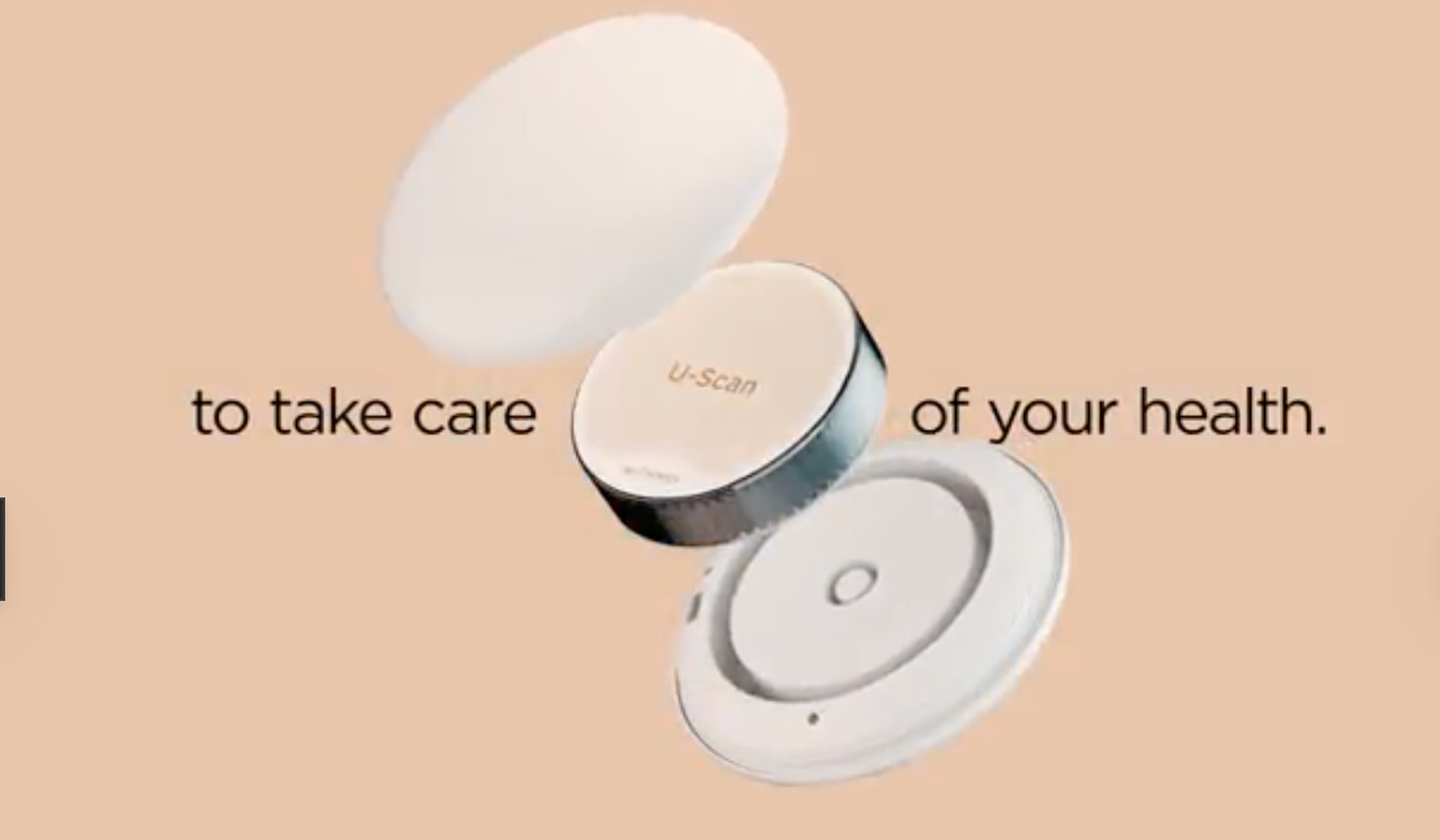
Screenshot: Withings
Another ick factor is data privacy, especially with regard to menstrual health following last year’s overturning of Roe v. Wade. On that front, Letombe says the U-Scan is GDPR compliant. “It’s our company guideline not to allow anyone to look at that data. We still need to look at the details regarding law enforcement, but at some point, we would rather not sell something than to be at risk of sharing intimate data.”
Of course, all of this also depends on regulatory approval. European consumers will be able to buy the U-Scan reader and both Cycle Sync and Nutri Balance cartridges in Q2 2023 for €499.95. After that, you’ll have to subscribe to refill cartridges or buy them separately. Medical applications for U-Scan, however, are pending European regulatory approval.
Meanwhile, in the US, Withings is still waiting for FDA clearance, which could take anywhere from months to years. Withings has come up against this before with its Move ECG smartwatch and the Withings ScanWatch. While the latter has launched, the former is still MIA.
